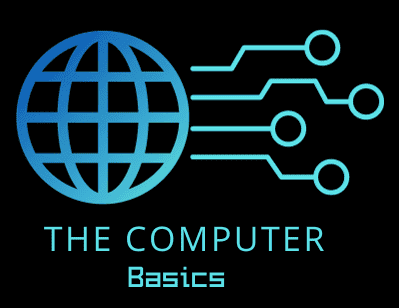In today’s digital age, online privacy is more important than ever. With so much of your personal information at risk, it’s crucial to use tools designed to protect your data and identity.
Apps like VPNs, secure browsers, and encrypted messaging services can help keep your online activities safe and private. Whether you’re browsing the web, sending messages, or shopping online, these tools offer robust security measures to fend off hackers and snoops.
VPNs hide your IP address and encrypt your internet traffic, making it harder for anyone to track your online movements. Secure browsers help block trackers and ads that can compromise your privacy. Encrypted messaging apps ensure that your conversations remain private, providing end-to-end encryption.
Using these apps not only keeps your information secure but also gives you peace of mind. By incorporating these tools into your daily routine, you can navigate the internet more safely and confidently.
Key Takeaways
- Online privacy is essential in protecting your personal data.
- Privacy apps include VPNs, secure browsers, and encrypted messaging services.
- These tools help you browse, communicate, and shop safely online.
Understanding Online Privacy and Risks
Online privacy is crucial for protecting your personal data and identity. Knowing the basics of personal information and the risks can help you stay safe while browsing the internet.
The Basics of Personal Data and Privacy
Personal data includes any information that can identify you, like your name, address, or even your browsing history. When you go online, this information can be collected by websites, apps, and even data brokers.
Privacy apps, like VPNs and encrypted messaging services, help protect this data. They hide your IP address, secure your messages, and keep your digital footprint minimal. Knowing what’s at stake will help you choose the right tools to safeguard your information.
Common Online Threats and Privacy Breaches
Online threats include spyware, malware, and hackers trying to access your personal data. These threats can lead to identity theft or a data breach, where your data is exposed.
Hackers use tactics like phishing to trick you into giving up sensitive information. They can also use malware to snoop on your online activities. Privacy apps can help defend against these risks by encrypting your data and blocking harmful tracking.
Monitoring your digital footprint and being aware of these threats can reduce your risk of exposure. Using secure browsers and keeping your software updated are simple yet effective ways to protect your privacy.
Essential Privacy Tools and Services

To keep your data and identity safe online, you’ll need a handful of essential tools. These include VPNs, secure browsers, and encrypted messaging services. Each of these tools serves a specific purpose and can greatly enhance your online privacy.
Virtual Private Networks (VPNs)
A VPN creates a secure, encrypted connection between your device and the internet. This makes it tough for anyone to spy on your online activities. Popular choices like ExpressVPN offer no-logs policies, ensuring they don’t store your browsing data.
Using a VPN hides your IP address, protecting you from tracking ads and advertisers. Plus, it lets you access geo-restricted content securely. Look for services using OpenVPN protocols and offering features like automatic kill switches and DNS leak protection.
Secure Browsers and Extensions
Secure browsers and extensions are crucial for keeping your web activity private. Browsers like Brave block ads and trackers by default. It also upgrades connections to HTTPS for safer browsing.
You should also consider browser extensions like HTTPS Everywhere, which forces websites to use secure connections, and ad blockers like Privacy Badger to stop advertisers from tracking your activity. Using a combination of these tools can reduce browser fingerprinting and enhance your online security.
Encrypted Messaging and Email Services
Encrypted messaging and email services protect your communications from prying eyes. Signal is a reliable messaging app offering end-to-end encryption, which means only you and the recipient can read the messages.
For email, consider services like ProtonMail, which also offers end-to-end encrypted emails. These services protect sensitive data and provide additional features like two-factor authentication for an extra layer of security. Disposable email addresses from tools like SimpleLogin can help keep your primary email safe from spammers.
Best Practices for Privacy-Conscious Internet Usage
When it comes to protecting your online privacy, two key areas to focus on are creating strong, unique passwords and ensuring your internet browsing remains anonymous. These steps can help safeguard your data from hackers, trackers, and other threats.
Password Strength and Management
Creating a strong password is your first line of defense. Use a mix of uppercase, lowercase, numbers, and symbols. Avoid obvious choices like “password” or “123456.” A password manager can help you generate and store complex passwords that are hard to guess but easy for you to access.
Password managers like Bitwarden and LastPass store your passwords securely and sync them across devices.
Enable two-factor authentication (2FA) where possible. This adds an extra layer of security, requiring not just your password but also a code sent to your phone.
Don’t reuse passwords across different accounts. If one account gets compromised, others could follow. Regularly update your passwords to minimize risks.
Navigating the Internet Anonymously
Using tools like VPNs, secure browsers, and encrypted messaging apps is crucial. A VPN (Virtual Private Network) masks your IP address, making it hard for trackers to follow you. Consider services like NordVPN or ExpressVPN.
Secure browsers and search engines like Brave and DuckDuckGo minimize tracking. They block online trackers, making it tough for data aggregators to create a profile about you.
Use encrypted messaging apps like Signal or Telegram. They protect your conversations from surveillance and ensure your messages remain private.
Limit your use of analytics-heavy platforms like Google and Meta-owned services. These companies often track and profile users for targeted advertisements.
Regularly clear your browser cookies and cache. This can help reduce tracking and prevent fingerprinting techniques used by websites to follow you around the internet.
By following these practices, you can enhance your online privacy and protect your sensitive information.
Protecting Your Mobile Devices

Keeping your mobile device secure is crucial given how much sensitive data these devices hold. You can enhance protection by managing app permissions and using tools to block tracking.
App Permissions and Securing Mobile Data
Be mindful of the permissions you grant to apps on your mobile device. Some apps request access to contacts, location, and camera even when it’s not necessary. Limiting these permissions can help protect your sensitive data.
Smart AppLock is a useful tool that lets you lock specific apps with a PIN or fingerprint, adding a layer of protection against unauthorized access. Regularly review and adjust the permissions for each app to ensure they only have access to what they actually need.
Additionally, use a VPN (Virtual Private Network) like ExpressVPN to encrypt your internet traffic. This hides your IP address from potential hackers and trackers. Public Wi-Fi networks are especially risky, so a VPN is essential when using these networks.
Safeguards Against Mobile Tracking and Data Collection
Mobile tracking can reveal a lot about your habits and preferences. Ad blockers and private browsers are your first line of defense. Apps like IPVanish offer robust VPN services, which block trackers and ads, providing an additional layer of anonymity.
Consider using a private browser like DuckDuckGo or Brave. These browsers block trackers and offer features like fingerprinting protection to keep your data more secure. Ad blockers can also help by disabling ads and stopping trackers from monitoring your online activities.
Lastly, keep your device updated to avoid vulnerabilities that could lead to data breaches. Ensure your device is equipped with an anti-malware app that scans for malicious software and alerts you to any potential threats.
Evolving Privacy Landscape and Future Considerations

As the digital world grows, so do the complexities of protecting your personal data. New laws and tech advancements continuously reshape how we handle privacy and security.
Legislation and Consumer Privacy Rights
Governments are creating new laws to better safeguard your personal information. In 2024, data privacy issues are a big focus, especially with ongoing changes in places like the EU, which often lead with strict rules on data protection.
In the US, states are also introducing their own regulations. For example, the California Consumer Privacy Act (CCPA) continues to evolve, giving you more control over how your data is used. These laws not only give you rights to know what data is collected but also to delete it or opt-out of its sale.
Companies are now obligated to comply or face serious penalties, pushing them to prioritize your privacy. This trend is likely to continue, offering you more power over your personal information, especially amid increasing concerns about data breaches and unwanted surveillance.
Emerging Technologies and Their Impact on Privacy
New technologies are double-edged swords for privacy. They can help protect your data, but they also introduce new risks. VPNs and encrypted messaging apps are becoming more popular to keep your online activities private. These tools help you avoid tracking by websites and data brokers, ensuring your communication stays secure.
Emerging tech like AI and blockchain bring both promise and peril. AI can enhance security by detecting threats faster, but it can also be used for sophisticated tracking and profiling. Blockchain offers decentralized solutions with better security, yet its transparency can expose transaction details if not used carefully.
Meanwhile, tools like ad blockers and secure browsers are becoming essential for avoiding trackers that monitor your online behavior. As we move forward, it’s crucial to stay informed about how these technologies affect your privacy and make smart choices to protect your data from evolving threats.

